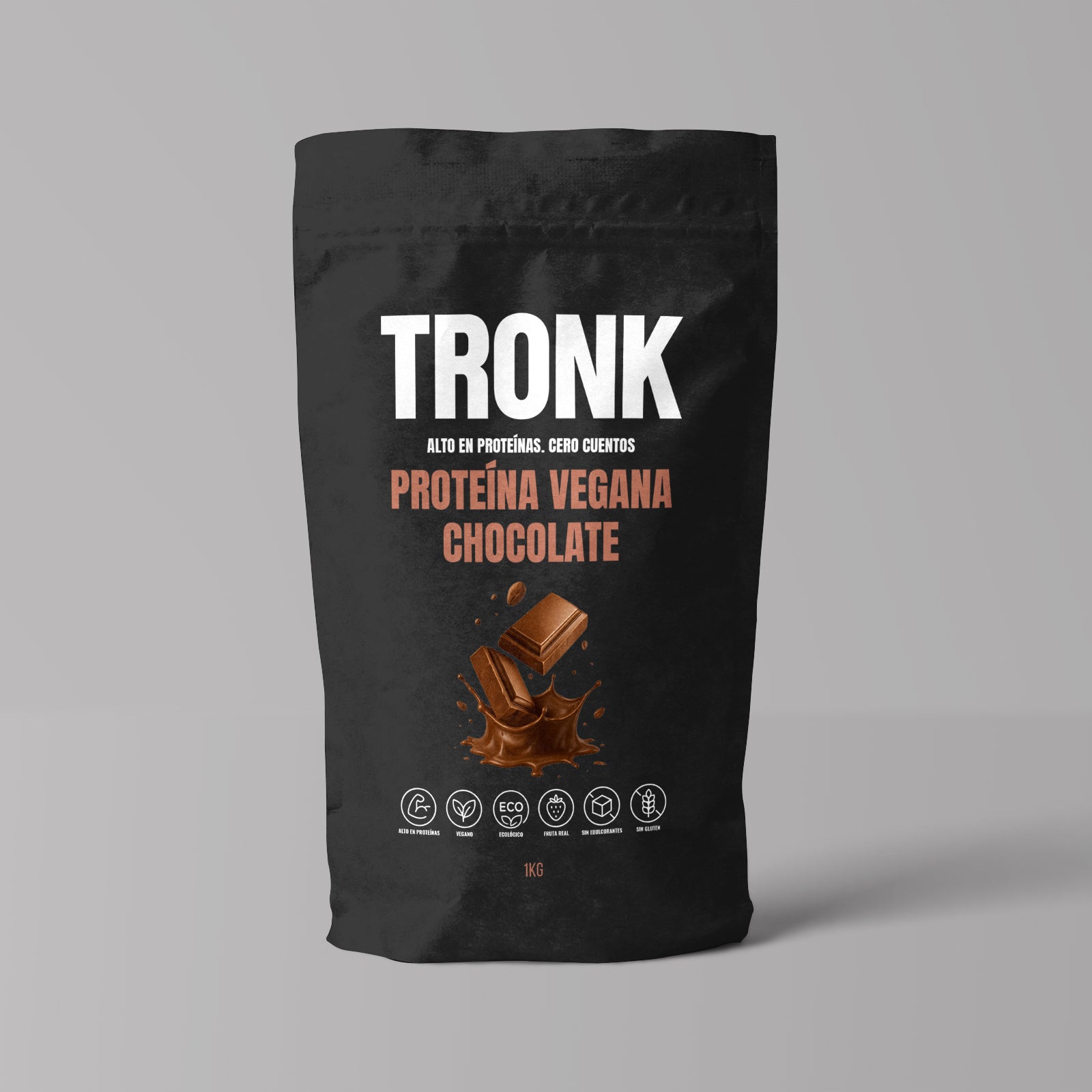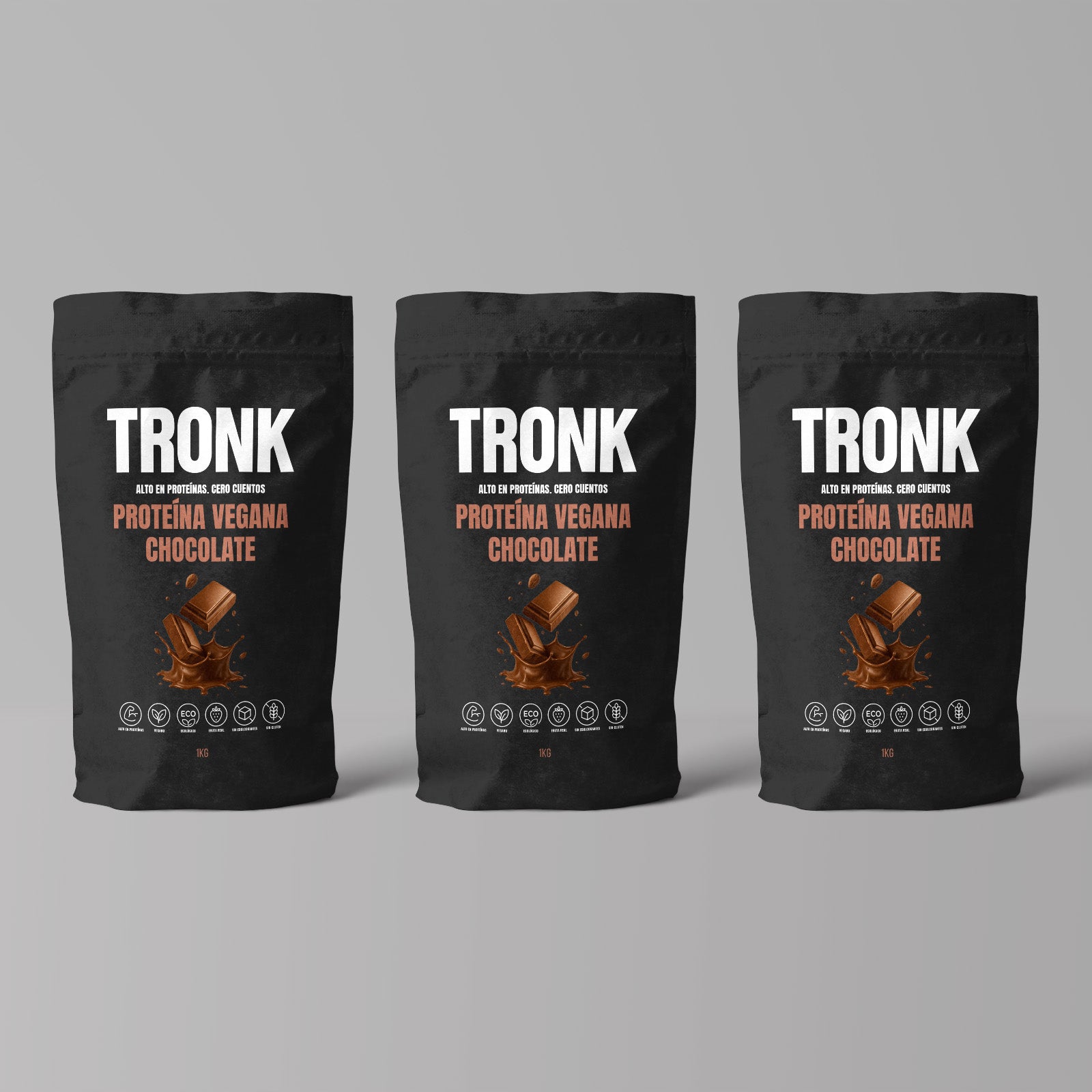Article: Muscle recovery: the importance of rest and nutrition

Muscle recovery: the importance of rest and nutrition
1. Recovering is not wasting time
Many people think progress is made through training. Wrong.
Muscle grows when you rest , not when you're in the gym.
Training only sends the signal: it puts the body to the test. But it's rest and nutrition —and this is where Trunk Protein comes in, with complete, high-quality plant-based proteins—that allow you to adapt, repair, and improve. Without muscle recovery, there's no growth. Only fatigue, overtraining, and stagnation.
2. What really happens inside the muscle
During an intense workout, muscle fibers do not break down , as was previously believed.
Modern science has made it clear: muscle growth does not depend on damage , but on mechanical tension and metabolic stimulation .
When you lift weights, the muscle detects that tension and activates signaling pathways like mTOR , which initiate muscle protein synthesis (MPS) .
This means that the body begins to produce new proteins within the fibers to strengthen them and adapt them to the effort .
The small structural damage that may occur (microtears in sarcomeres) is not the cause of the growth , but a secondary consequence.
In fact, advanced athletes barely suffer muscle damage and continue to grow just as much or even more.
The key is to stimulate without destroying .

3. The role of rest in muscle recovery
Rest is part of training, not a break.
Sleeping between 7 and 9 hours per night allows the body to release growth hormone (GH) and testosterone , two key players in muscle repair.
- A study in Sleep (2011) showed that sleeping only 5 hours per night for a week reduces protein synthesis by 15% .
- Another, in the Journal of Strength and Conditioning Research (2019) , found that those who sleep less than 6 hours have more injuries and lower performance .
Sleep is just as important as lifting weights or eating well.
It's not laziness: it's part of progress.
4. Nutrition: the fuel for muscle recovery
Muscle isn't repaired with good intentions. It's repaired with nutrients.
Proteins
The body needs amino acids to rebuild muscle fibers. Studies ( Jäger et al., 2017 ) recommend between 1.6 and 2.2 g of protein per kilogram of body weight per day to promote muscle recovery.
Quality matters: Plant sources like peas and rice combined provide a complete amino acid profile, comparable to that of animal protein.
That's precisely what Tronk offers.
Carbohydrates
After exercise, carbohydrates replenish muscle glycogen , the main source of energy for the next workout.
Taking protein and carbohydrates together speeds recovery.
Healthy fats
Don't eliminate them. Fats from nuts, avocado, or olive oil help control post-workout inflammation and balance hormones.
Micronutrients
Zinc, magnesium, iron and B vitamins are essential for cell regeneration and muscle function.
A deficiency in these micronutrients can limit your progress even if you train well.

5. Advanced strategies to improve muscle recovery
- Deep, regular sleep: Avoid screens an hour before bedtime and create a dark, cool environment.
- Constant hydration: Even mild dehydration delays tissue repair.
- Active rest: Walking or exercising helps eliminate metabolic waste and improves circulation.
- Smart planning: alternate hard workouts with days of relaxation or technical work.
- Functional supplementation: creatine, omega 3, or complete plant protein can enhance muscle recovery.
6. The most common mistakes that destroy recovery
❌ Training tirelessly believing that more is better.
❌ Sleeping little and thinking it's discipline.
❌ Drinking alcohol “to relax.”
❌ Using low-quality proteins with fillers or cheap amino acids.
❌ Eating little or eliminating entire food groups.
Each of these mistakes slows down protein synthesis and sabotages your muscle recovery .

7. Tronk and the muscle recovery without stories
At Tronk Protein we don't talk about magic or secret formulas.
We're talking about real nutrients , with the exact proportion to help the body do its job.
Our protein combines pea and rice , two plant sources that together provide all the essential amino acids .
No fillers, no sugar, no stories.
High digestibility, natural texture, and the perfect dose to promote protein synthesis after training.
Every scoop of Tronk is raw material for your muscles , not marketing disguised as a supplement.
And if you combine it with rest, sleep, and good nutrition, the results are noticeable: more strength, less fatigue, and a body that progresses.
Conclusion
Muscle recovery is not a luxury.
It is the phase where the effort is consolidated.
Training sends the message, but rest and nutrition write the response.
Train wisely.
Eat wisely.
Rest with intention.
And choose a protein that speaks your language: Tronk .
Vegetable strength, without stories.



